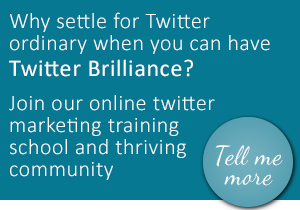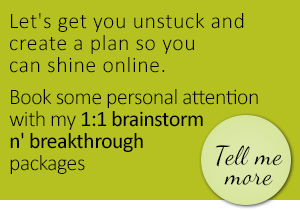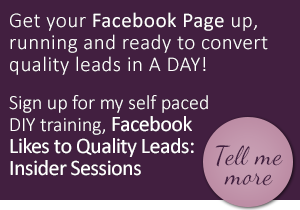Blog
Solid Productivity Tips Category
Event Planning: 6 Secrets To Success

Planning a training workshop or event? Workshop content will always reign as the most important factor but some important points are often overlooked when planning a workshop. Consider these six important points when hiring a venue. By remembering them the next time you plan a training event will ensure it’s remembered for the right reasons and score you extra brownie points with your guests.
1. Location
Ensure your event space is well served by good transport links or has parking facilities. Make it easy for attendees to get to you and provide them with a good printable map with transport and parking information in your pre-workshop delegate pack.
2. Facilities
Are the toilets nearby or will you and your guests have to race up two flights of stairs for the nearest loo? Don’t overlook the importance of nearby facilities. Fact: Your guests will take a toilet break during your workshop – you don’t want them to miss anything and neither will they.
3. Going up?
Is your room on the top floor of a six storey building with no lift or in a windowless basement? Consider accessibility as well as ambiance when choosing your meeting space. Ideally a room on the ground or first floor with plenty of natural daylight. It will keep everyone perky and create a feeling of extra space.
4. Seasons
Ok, so if it’s mid-winter maybe a cosy basement room isn’t such a bad idea. However, guests will want to check-in coats. Find out where these can be securely stored. Summer will be the opposite – think natural daylight and air conditioning.
5. Equipment
It’s not unusual for venues to charge extra for equipment, such as flip charts, projector screens and especially AV equipment which can turn your good value workshop into a money-pit. Consider your equipment requirements and discuss with the venue before confirming your booking.
6. Refreshments
What’s included, where is it served and when do you want it? Discuss this with the venue and arrange refreshment breaks around your workshop agenda. Remember to consider the dietary requirements of your guests and communicate this to the venue to avoid any embarrassing situations when lunch is served.
An experienced event planner will consider these factors, among others, when managing a successful workshop. So perhaps you should consider hiring one for your next event. That way you can concentrate on that all important course content while your planner can ensure you and your guests enjoy your event.
10 tips to boost your motivation after a break

Hands up, who’s got the holiday blues? If you’re finding it difficult to get back in to work after the holiday season here are 10 great tips to help get your mojo back.
- Have a good breakfast. The most important meal of the day.
- If you work from home build in a ‘commute’. Maybe walking to the local coffee shop or out to grab a paper. It will make a clear division between your home and your work day.
- Manage distractions. Mute your phone, turn off email so you can concentrate fully on the task at hand.
- When tackling your inbox, go through your emails as they have appeared in your inbox and deal with them systematically.
- if it can be dealt with now, do it;
- if it needs further action, defer to your action list;
- if you don’t need it, delete it;
- if you need to keep it for reference, file it.
- Procrastinating? Turn off all distractions. Grab a stopwatch and set it for 15 minutes. In those 15 minutes concentrate solely on your specified task and see how far you get. Chances are you’ll be in the swing of it after 15 minutes and can continue until it’s done.
- For every 90 minutes of work you complete take a 15 break to recharge. Come on, you deserve a break!
- Batch up your tasks. Allocate specific time slots to work on admin. For example 1 hour on emails, 45 minutes for phone calls, 1.5 for accounts and so on. You’ll be surprised how much gets done and that will boost your motivation.
- Be realistic. If you’ve got 20 items on your task list and expect to get them done in a day you are probably going to be disappointed. Divide your tasks into priority order and aim for 3 – 4 chunky tasks. You’ll feel great once they’re done and you’re moving on to the 5th.
- Big, overwhelming projects can languish on your task list being avoided. Break these down into smaller, more manageable pieces.
- If you really don’t want to do something or haven’t got the time, outsource it. That’s what book-keepers, Virtual PAs and copywriters are for.
Got any good tips to add? What helps to get you motivated after a holiday?
5 healthy tips for the desk bound

Smiley stress balls. Who needs 'em
Yesterday, I was at my desk for 10 hours straight. The day sped past in a blur of activity albeit one that required little movement at all. I know how I should be working to be healthy and generally I do, but sometimes it’s easy to forget when you have a mountain of work. I’ve picked up some great tips over the years from a variety of health professionals and my mum, so I thought I would share them with you here.
Keep hydrated. Drinking vatfuls of coffee is not going to do you any good. Always keep a glass of water on your desk. Keeping hydrated will help your concentration and focus while maintaining energy levels. My acupuncturist told me to drink 2 litres a day, that’s about 4 pint glasses.
Tidy desk, tidy mind (thanks mum). I’ve mentioned this one before and it reverberates in my head along with my other favourite mantra ‘never assume’. Seems silly maybe, but this seriously makes a difference to your state of mind. Keep your workspace clear of unnecessary clutter including that smiley face stress ball sent to you by the guy who printed your stationery. Does anyone ever use those things anyway??
Take a break. For every 90 minutes of work you do, take a 15 minute break. That means get away from your desk and do something less boring instead. Get the blood flowing, focus your eyes on distant objects, stretch out those muscles. As my physiotherapist once told me, ‘You have a body – use it!’
Posture perfect. Having suffered with back problems I understand the importance of correct desk posture to prevent strains and tight muscles. Ideally, your knees should be at a 90 degree angle with feet flat on the floor or a foot rest, and your eyes level with the top of your computer screen directly in front of you. Support your forearms and wrists on your desk to prevent wrist strain.
Don’t just sit there. If you spend most of your working week at your computer that’s an average of 40 hours of sitting. Add that to the 56 hours a week you are asleep, and additional hours spent watching TV, eating, reading, driving and commuting – it could amount to more than 2/3 of your 168 hour week! A little daily exercise is great for your energy levels, and taking yourself away from the office can help clear the mind and get those thoughts flowing. If you work from home, walking round the block at the end of the day can be a great way to wind down while making a clear divide between your work and home life – think of it as your daily commute without the train cancellations and traffic jams.




